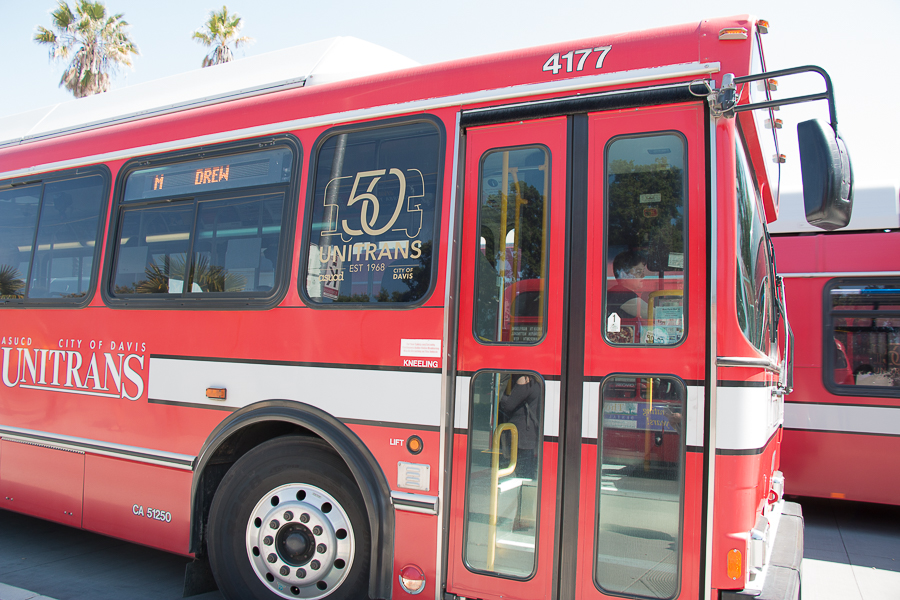
From anti-war beginnings, student grassroots movement is third largest transit system in California
50 years ago, Unitrans began as an ASUCD executive ticket project to prove to administration the extent of student power and capability. Today, Unitrans looks back on its successes while also planning for the future.
In 1966, ASUCD presidential candidate Bob Black envisioned creating a student-run grassroots experiment to show the authority of student vision and voices. In the midst of the Vietnam War, Black won the executive ticket on an anti-war platform and a belief in student involvement as change-makers.
Two years later, in 1968, Black had taken his vision of creating a student-run bus service and turned it into a reality. Beginning with the purchase of two old red double-decker buses that were shipped to Davis from London and the hire of fellow student Tom Madoff as operations manager, Unitrans began to take shape as a UC Davis institution. Under Madoff’s management, the two old buses were brought up to code and student drivers were hired and trained.
On Feb. 28, 1968, Unitrans began with the original A and B routes. The original routes look very different from current routes today. In order to maintain Unitrans operations, in 1972 ASUCD and the City of Davis formed a partnership to expand Unitrans operations.
For the next decade, Unitrans continued to operate and was solely student-run until 1978, when the first Unitrans career staff was hired. Today, 15 career staff work for Unitrans, while the day-to-day operations remain controlled and operated by students.
In the late 1980s, UC Davis students voted to pay student fees to help Unitrans grow in exchange for allowing students ride for free.
“From there, ridership doubled,” said Jeffrey Flynn, the general manager of Unitrans. “It went from 600,000 to over one million by 1990.”
A staple of Davis life, Unitrans has grown to become the third largest transit system in the state, and remains in the top 20 in the nation. Today, Unitrans has 18 bus lines, 50 buses, employs 250 students and has remained an institution operated by students and for students.
The salaries of Flynn and other career staff members are paid for by the City of Davis while student fees are used exclusively for the continued maintenance of Unitrans.
“All student fees we get go back into student pockets,” Flynn said.
Students from all majors make up the Unitrans team, helping transport passengers around the city and campus.
Jack Breault, a third-year mathematics major, works as Unitrans’ human resources director. Over the last year, Breault has moved from the position of bus driver to a director.
“A big role I have in the company is in bringing new faces into Unitrans and helping old faces take on new responsibilities,” Breault said.
Third-year electrical engineering major Skye Ann DeVelasco works as a student mechanic and ad saleswoman. DeVelasco works alongside fellow student mechanics as well as professional mechanics. Along with rewarding career-building experiences for the future, DeVelasco has also found a tight-knit community of students at Unitrans.
“Shop also has a great group of people that can have fun together while we work and when we’re off the clock,” DeVelasco said.
With 50th anniversary celebrations underway, Unitrans can reflect on its successes while also planning for the future. In the mid-90s, Unitrans transferred to compressed natural gas in the hopes of making the institution more sustainable. Today, Unitrans plans to have 50 percent of its buses run on electric energy by 2022.
Written by: Ally Russell — campus@theaggie.org









